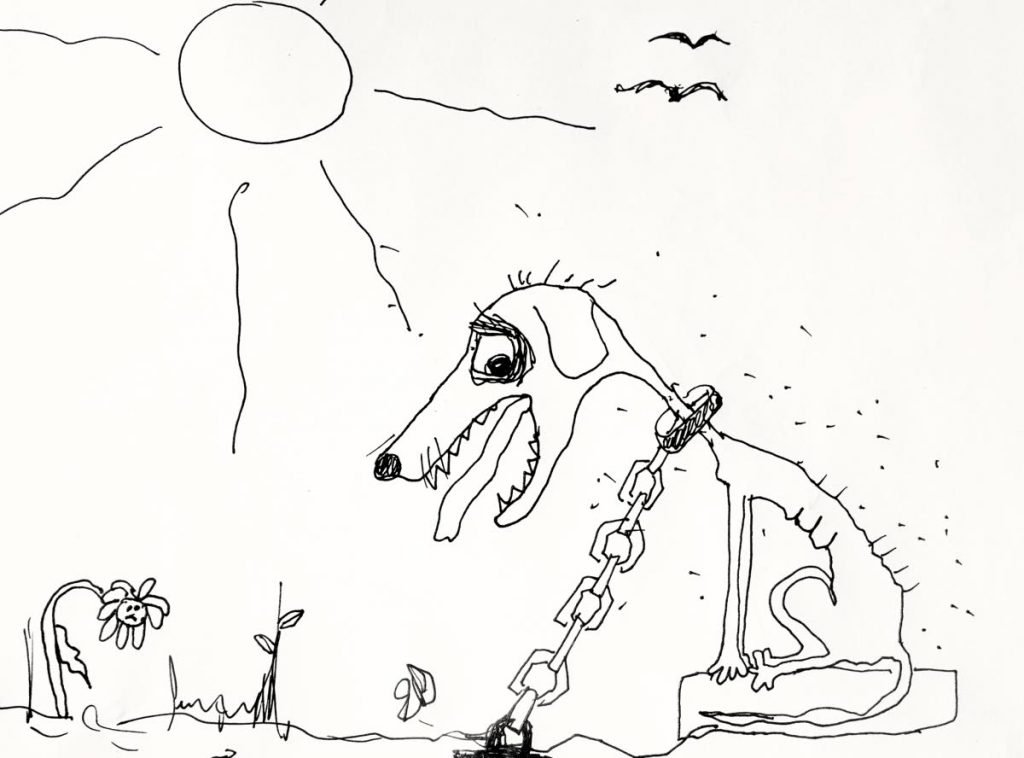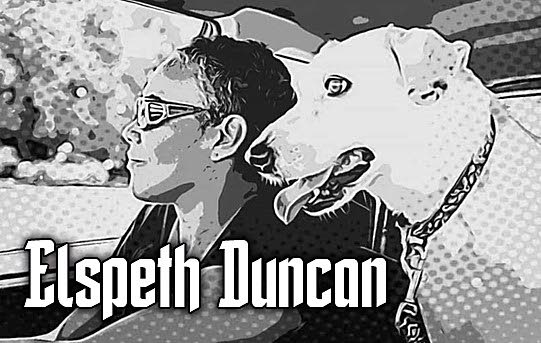It's not mine

Elspeth Duncan
Once I was sitting at a table in the food court at Lowlands Mall trying out a new wireless keyboard. On completion of my task, I packed everything up (or so I thought) and drove to Goodwood, where I lived at the time.
On arriving home, I realised that the keyboard was not with me and made the long drive back to the mall, hoping to retrieve the item. It was exactly where I had left it.
“People in Tobago generally don’t touch anything that isn’t theirs,” someone explained to me subsequently.
This, as I discovered, applies to both the inanimate and animate.
Recently while talking with some children about animal welfare, I mentioned that I often see dogs tied on short chains, panting excessively in the scorching sun, with no shelter or water. I explained that whenever I see this I stop at the property in question, call out to the owner and, when they emerge, politely point out that the dog is very thirsty and suggest they (or I) should give it some water.
The children looked at me in shock. “But Miss, you minding people business!”
Taken aback by their perspective, I responded: “Once you see any vulnerable creature suffering and you’re in a position to help, I suggest that you do what you can.”
A wide-eyed boy said: “But Miss, is not your dog!”
On another occasion, a handyman at a primary school told me that he once asked a young male student to turn off a running tap, but the boy refused, saying: “Sir, it’s not my tap.”
I never realised how many coins are scattered on our streets until friends from abroad were visiting Tobago and one of them, whenever she saw a silver or copper on the ground, would pick it up. One day a man called out to her, telling her to never pick up money from the street because it’s not hers, she doesn’t know who left it there and they could have put "something" (ie obeah) on it. She responded that she doesn’t believe in obeah, but believes that if she continues to collect coins from the streets she will one day be a millionaire.
Earlier in January, I painted some pieces of wood white and, with red paint, added messages of Love:
You are Love...Love Heals...Be Love...Spread Love...Love is Magic...etc.
The signs were small but sufficiently large to be read from about 15 feet away. My intention was to place these "Love signs" in random public places, as unexpected uplifting messages for those who noticed them. However...with heads so often bent, staring into phones, how many would actually see the signs of love?
I put the "You Are Love" sign to stand on the bench in the corner of a bus stop. I was impressed to see it days later in the same spot.
Days later it was on its back, message facing up, no longer visible to passers-by.
Later yet, it was standing again. Someone had seemingly found the message sufficiently important to set right, to be seen by all.
Days later it was laid flat like a beer mat, with a beer bottle on it.
Today, as I write this, the sign is no longer there. Someone who does not subscribe to the “It’s not mine” ethic may have taken it home to be used as décor...or presented it as a gift to a loved one...or, considering it garbage, may have tossed it in a bin.
Typical not only of Tobagonians, the “It’s not mine” attitude also applies to Trinidadians.
How many people in TT see garbage, suffering animals, people parking inconsiderately and other societal "issues" and say “It’s neither mine nor my business”...thereby doing nothing, waiting for someone else to fix it? While the "It’s not mine" mantra is in some instances good, as it shows a degree of honesty, in others, it can denote a sense of caring only for oneself. When we understand that we are all one with our environment and that its well-being depends on us, we will move from “It’s not mine” to “The choice is mine...the responsibility is mine...to help make this world a better place for all.”



Comments
"It’s not mine"